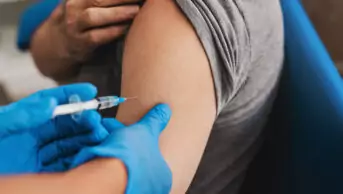
Nikita Kanani
Some primary care networks (PCNs) have been forced to hire pharmacists with less experience than they wanted because there are not enough working at the required level, NHS England has confirmed.
In an interview with The Pharmaceutical Journal in January 2020, Nikki Kanani, primary care medical director for NHS England and NHS Improvement, said there had been difficulty in recruiting experienced pharmacists in some areas of the country, particularly in the South West of England.
“It does vary around the country, so some people will say that they’re fully recruited as a PCN, [and] some areas are struggling for one particular group or another,” she said.
“Some areas had to recruit somebody probably a little bit less experienced and that wasn’t necessarily their intention, but they’ll be able to do the training and get them on track and get them equipped to do the things they want to do as a PCN over time,” she added.
Her comments come as the Pharmacist’s Defence Association (PDA) warned on 27 January 2020 that NHS England’s proposals for PCN pharmacists to review the medication of millions of patients may put patients at risk.
In its consultation response to draft proposals for implementing structured medication reviews from April 2020, which was published in December 2019, the PDA said the plans were based on an assumption of having a “full complement” of experienced pharmacists in place rather than on the actual available workforce.
Instead, it said NHS England is “potentially introducing patient risk by including junior and inexperienced pharmacists as clinicians expected to provide structured medication review to complex patients”.
The consultation response pointed out that it is assumed there will be 3,600 clinical pharmacists for 2020/2021 — three per PCN — working independently at a senior level and capable of carrying out structured medication reviews or the enhanced health in care home service. However, in reality most newly recruited staff do not yet have this level of experience.
In its response, the PDA called on NHS England to halt the current consultation and perform a full impact assessment on workforce as well as reviewing the current timescale.
“Much of the evidence that pharmacists can reduce pressure for GPs is based on senior clinical pharmacists working independently having built up competencies over many years of supervised practice.
“We have already seen time pressed GPs asking junior clinical pharmacists to assume responsibilities far beyond their competency. These workplace pressures will only increase if these new specifications were to go ahead in the proposed timescale,” the PDA’s consultation response said.
It follows other consultation responses from the profession published after it closed on 15 January 2020, including the Royal Pharmaceutical Society, which warned current plans may be too ambitious and more time is needed to grow and embed the workforce.
Graham Stretch, clinical director of Brentworth PCN, told The Pharmaceutical Journal: “It shouldn’t come as a surprise to anybody there’s a shortage of oven-ready pharmacists … you can remedy that fairly quickly, but that’s in two years not two months.”
He added that the NHS England specifications were laudable but they were not going to be quickly doable at that kind of scale.
“I’m optimistic that these comments will be taken on board to allow us time to build that workforce.”
And integrated care jobs between hospitals or community pharmacy and PCNs would probably be the way forward with some good models being developed, he said.


